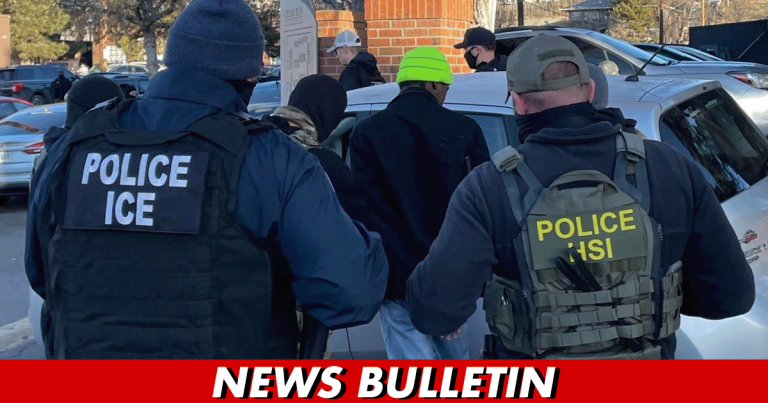
In a time when common sense feels like it’s slipping away, many Americans are asking the same question: Why are dangerous criminals getting more protection than everyday citizens? While hardworking Americans pay taxes and raise their families, some politicians shield lawbreakers—acting as if upholding the law is optional.
It’s a strange chapter, one where obeying the law gets you ignored, and breaking it earns you sanctuary. So what happens when local governments abandon their duty to protect? Thankfully, there are still federal agents doing the job—and one recent example in Colorado says it all.
A Quiet Operation Hiding a Loud Failure
In Denver this July, Immigration and Customs Enforcement (ICE) carried out a quiet but major operation that most media outlets barely noticed. From July 12 to July 20, federal agents arrested 243 illegal immigrants across the Denver metro area. These weren’t simple immigration cases—they involved criminal aliens with serious, violent offenses on their records.
We’re talking about people charged or convicted of crimes like murder, human trafficking, child sex abuse, and drug trafficking. More than a headline—it’s a warning about what happens when local governments stop cooperating with federal law enforcement.
From ‘ICE.gov’:
U.S. Immigration and Customs Enforcement arrested 243 illegal aliens in the Denver metro area who are currently charged with or have been convicted of criminal offenses after illegally entering the United States…
Many of the criminal aliens ICE arrested during this operation had been previously released into the Denver metro area by local county jails — directly into the community — because of Colorado’s sanctuary laws that prevent Sheriffs from cooperating with ICE.
ICE Doing the Job the Left Refuses
Despite local resistance, ICE remained focused—and what they uncovered was terrifying. One arrestee, Blanca Ochoa Tello, had 20,000 fentanyl pills in her car when stopped. Another, Tomas Arana-Fuentes, faces multiple charges of sexual assault. Some belonged to brutal criminal gangs like Los Zetas and Tren de Aragua. Others had ties to drug trafficking rings moving poison across state lines.
Several individuals had already been deported before and simply returned to commit even more crimes. But because of Colorado’s sanctuary laws, sheriffs couldn’t notify ICE that these criminals were back on the streets.
Here’s a snapshot of what these 243 arrests included:
- 17 driving under the influence
- 13 assault charges
- 9 drug-related offenses
- 8 theft or robbery charges
- 5 sex-related offenses involving minors
- 2 homicide suspects
- 1 for human trafficking
This isn’t immigration policy—it’s public safety. And when states refuse to help, it’s our neighborhoods that suffer.
Fentanyl, gangs, and our kids’ safety
Fentanyl—the drug tearing through America’s heartland—showed up again in this case. A single suspect alone carried 20,000 pills. That amount could devastate communities.
These weren’t random individuals. Some were affiliated with violent international gangs like Sinaloa and Los Zetas. Their crimes weren’t petty. The threats they posed were real—to school zones, hospitals, and homes like yours. In Greeley, one of the arrestees was already convicted of sexually assaulting a child. Another had caused a fatal crash. ICE didn’t just stop entry—they helped stop a tragedy.
And yet, these individuals had passed through local jails—only to be released because politics came before protection.
Colorado’s policies block local jails from flagging ICE when dangerous criminals are released. In some cases, they don’t even allow federal agents into holding areas. That means ICE has to hunt for criminals after they’ve already been turned loose into the community.
FOX31 reported that 188 of the arrests involved charges not publicly listed—meaning ICE is cleaning up legal messes that politicians bury in vague legal language like “enforcement priorities.”
ICE’s message was clear: without local cooperation, their job becomes harder—but not less necessary. Federal agents stepped up. Local politicians stepped back.
Key Takeaways
- Colorado’s sanctuary laws forced local jails to release dangerous illegal criminals.
- ICE arrested over 240 aliens, including sex offenders and drug traffickers.
- Some arrested had ties to violent gangs like Los Zetas and the Sinaloa Cartel.
- Federal agents are doing the job local politicians refuse to do.
Sources: ICE, FOX31 Denver


